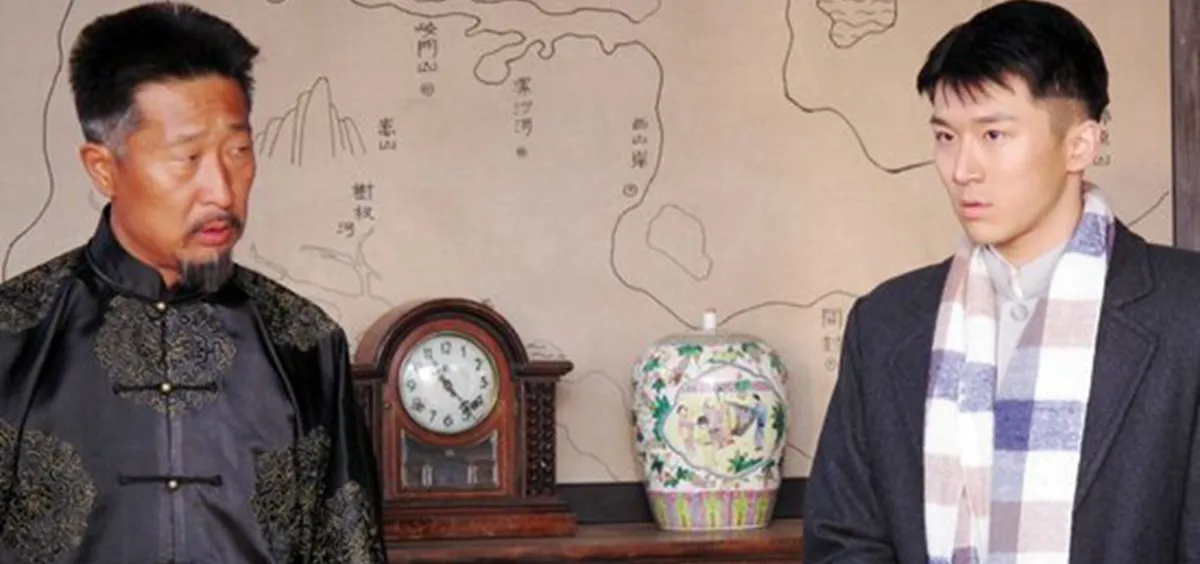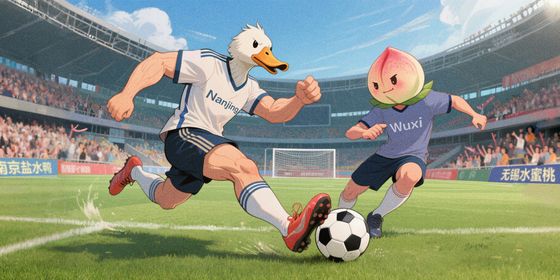Personality, presence, and “oriental beauty”—the Chinese language has many “polite” insults about a person’s appearance
International events like film festivals and fashion shows are good ways for Chinese actors and models to grab attention—the positive, and the not-so-positive. At New York Fashion Week in September, 19-year-old model Jia Chenyu became an overnight sensation on the Chinese internet for her resemblance to actor Lin Yongjian.
Unfortunately, this wasn’t meant to be a compliment: With small eyes and a high forehead, Jia’s looks fall opposite to mainstream Chinese beauty criteria. Rather than direct criticism, though, Jia’s haters used a positive sounding comparison—which didn’t blunt the impact, and just added to the sting.
The backhanded compliment is a time-honored Chinese tradition: According to a proverb about Zhuge Liang, whose wife is said to be plain-looking by most legends, the famous strategist was introduced to his future wife by her father, who said, “Her talents are a match for yours.” Next time you hear the following phrases from friends or coworkers, look again:
“An oriental beauty in Westerners’ eyes” (西方人眼中的东方美)
Orientalism refers to the mostly erroneous perceptions Europeans traditionally held about Asia, and this phrase pokes fun at the apparent gaps between Chinese and Western perceptions of beauty in Asian women. For example, Lü Yan, the first Chinese supermodel on international catwalks, is often called out by netizens who cannot understand her success abroad; certainly, her relatively small eyes, a flat nose, and freckles are perplexing to a country where people buy products or even get surgery for fairer skin, bigger eyes, and a high-bridged nose.
So when netizens comment, “这就是西方人眼中的东方美吧, 说实话, 我欣赏不来 (This must be what Westerners see as an oriental beauty; I frankly can’t appreciate it),” it means they just don’t get the appeal.
“Fresh and otherworldly” (清新脱俗)
This phrase sounds innocuous at first: It originally referred to young women whose pure and innocent looks seem not of this Earth. Actresses who frequently get labeled thus are Liu Yifei (刘亦菲), Disney’s new live-action Mulan, and Dong Jie (董洁), especially after her performance as the “white lotus” female lead in the 2003 TV series The Story of A Noble Family (《金粉世家》).
However, because “otherworldly” is byword for “unusual,” and that’s just a short step below “abnormal,” this phrase can be used to imply someone is “strange-looking.” The logic is convoluted, but that’s what makes it sneaky.
“Unique/Have personality” (个性、特别)
As they say, you don’t need to look good if you’re unique (probably). Because it is not polite to tell one’s acquaintances that they (or their babies) don’t look good, many Chinese, if pressed for a comment, will focus on some other characteristic of a person (“you’ve got a great personality!”). Over time, it’s become generally understood that if you tell someone “你的朋友长得很有个性 (Your friend looks have ‘personality’),” it means you think they look like nothing in heaven above or on the earth beneath or in the waters below—so tread carefully, even if you think their eyebrow shape is totally unique and cool.
“Have great presence” (有气质)
Originally, this phrase described someone’s graceful carriage or the elegant impression they give people. However, thanks to pushy sales agents, it’s come to mean that you don’t look like frump in that jacket and should buy it right away. Due to the vagueness of what it describes, “presence,” like “personality” above, is seen as a catch-all comment for when people can’t come up with anything complimentary to say, so if your friend responds “他/她很有气质 (He/She has great presence)” to a photo of your significant other, respond with some backhanded compliments about your friendship.












